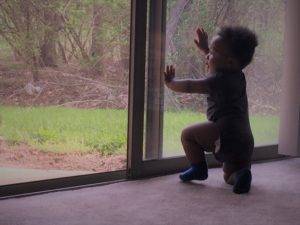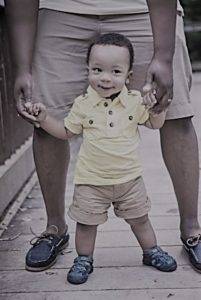 I was recently reminded of a story of my son in the days after my husband’s death. My husband Raymond died suddenly on a Friday morning. In our daily routine, Raymond got our son ready for the day and dropped off to daycare. I did pick up after work. Generally, Raymond would pull into the garage and walk through the door around 6 o’clock every night. Then a joyous shout out to our son would ensue. This “shout out” included a made up song with a chorus of our son’s name chanted over and over. There was also a mini dance, shoulder shrug that Raymond boogied as our son would run and greet him also cheering Dad’s arrival.
I was recently reminded of a story of my son in the days after my husband’s death. My husband Raymond died suddenly on a Friday morning. In our daily routine, Raymond got our son ready for the day and dropped off to daycare. I did pick up after work. Generally, Raymond would pull into the garage and walk through the door around 6 o’clock every night. Then a joyous shout out to our son would ensue. This “shout out” included a made up song with a chorus of our son’s name chanted over and over. There was also a mini dance, shoulder shrug that Raymond boogied as our son would run and greet him also cheering Dad’s arrival.
Saturday. I remember that I was still filled with a numbness from the shock of all the events leading up to and after his ultimate death. The days after his death felt like a whirlwind. At some point, I laid on the couch staring off into space as our son seemed carefree. He laughed, he played, and had not a worry in the world. He was 15 months old, full of love, and happy. He could walk but was not yet talking.
Monday. Reality started to kick in. My son was to continue his weekday routine of attending daycare. For me, Monday was filled with funeral planning activities. Other than that, I had to face the dreaded 6 o’clock. The first week after Raymond’s death, I dreaded 6 o’clock. As our son was fed his dinner, I noticed he continued to watch the garage door. This broke me every day that week. Finally, after a few days, he started pointing to Raymond in family pictures around the house. It was clear that he had figured out that something was wrong. Daddy has not come through that door. I choose not to have him attend the wake or the funeral service but I did have a one on one conversation with him. I do not know if he understood as I pointed to the picture and explained what had happened and what was going on, but I explained it as best I could through the tears.
It took time for me to realize that our son may need to grieve. Children are often called the “forgotten grievers” and their feelings also need validated. I was so overwhelmed and processing the loss, I did not consider that a 15 month old was really affected by the loss. I don’t know what he understood at the time but it became clear that he was missing his father. I know that he tried to communicate it in his own way and he had not been given the opportunity to be in sadness. He missed hearing his Dad’s cheer for him every day after school. He missed their morning time together. He simply missed his Dad.
Sometimes a sign is as clear as a child without a voice pointing to a picture longing for their loved one. Three years later, I have much more insight on how to be there for my son. Sometimes, the solution for his silence in grief was me taking time to be available. As much as I did not want to play, I sometimes sat with my son as he played. It is hard to be present sometimes in the mist of grief but I wanted him to see me cry and for it to be ok. And in turn, he gave me a moment of play where he reminded me that he is our love story. Together, my son and I will support each other. In more recent times, this 4 year old has a lot more questions about Dad, and Dad’s death. Although, I have been able to create a space where he is comfortable asking me all about that; I have found that there are resources for children and will be exploring those options to assist in this transition of awareness.
Children’s grief is real and is important. Sometimes children have limited ability to express themselves and sometimes I do not have the energy, and/or patience, to nurture that need. One resource that I found very helpful is a local Hospice organization. They have groups and activities for adults and children. I have participated in them and am continuing to navigate through this journey as my son gets older.
Please share your experience, or other resources, in the comments. Let’s grow in this together.



I agree that children’s grief needs to be validated. They need to be able to ask questions and process on their own level. Great Job!